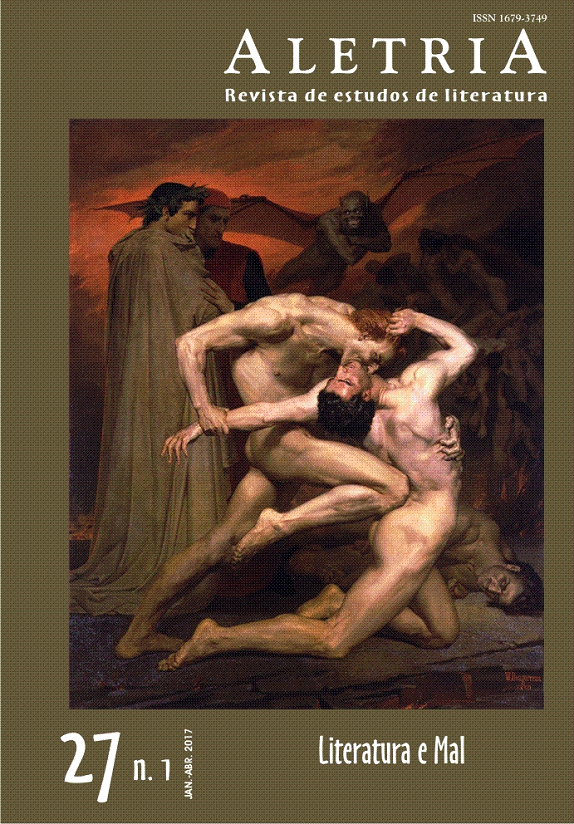O Discurso Indireto Livre em A Festa do Bode, de Mario Vargas Llosa
DOI:
https://doi.org/10.17851/2317-2096.27.1.13-35Palabras clave:
A festa do bode, Mario Vargas Llosa, discurso indireto livre, romances de ditadorResumen
O objetivo deste trabalho é analisar como o discurso indireto livre se configura na obra A festa do bode, de Mario Vargas Llosa, especialmente com o personagem ditador da República Dominicana, de 1930 a 1961, Rafael Leónidas Trujillo. Em obra publicada em 2005, o crítico literário Franco Moretti defende que o escritor peruano nos apresenta a mente de seu personagem sem que ela passe por filtros julgadores, graças à maestria do uso do indireto livre, por meio do qual o “mal” do ditador é sublimado. Verificamos neste estudo que a afirmação de Moretti parece não proceder à luz de uma análise mais acurada.
Descargas
Citas
AUSTEN, Jane. Orgulho e preconceito. Porto Alegre: LP&M, 2010.
BAKHTIN, Mikhail. Marxismo e filosofia da linguagem. São Paulo: Hucitec, 2006.
BANFIELD, Ann. Narrative Style and the Grammar of Direct and Indirect Speech. Foundations of Language, v. 10, n. 1, p. 1-39, 1973.
FLAUBERT, Gustave. Madame Bovary. 9. ed. Rio de Janeiro: Ediouro, 2008.
LLOSA, Mario Vargas. A festa do bode. Rio de Janeiro: Objetiva, 2011.
LLOSA, Mario Vargas. A orgia perpétua: Flaubert e Madame Bovary. Rio de Janeiro: Objetiva, 2015.
MORETTI, Franco. A Literatura vista de longe. São Paulo: Arquipélago, 2008.
MORETTI, Franco. O século sério. Novos Estudos – CEBRAP, São Paulo, n. 65, p. 3-33, mar. 2003.
NAVARRO, Marcia Hoppe. O romance de um ditador: poder e história na América Latina. São Paulo: Ícone, 1989.
WOOD, James. Como funciona a ficção. São Paulo: Cosac Naify, 2015.
Descargas
Publicado
Cómo citar
Número
Sección
Licencia
Derechos de autor 2017 Camila de Bona, Karina de Castilhos Lucena (Autor)

Esta obra está bajo una licencia internacional Creative Commons Atribución 4.0.
Authors who publish with this journal agree to the following terms:Authors retain copyright and grant the journal right of first publication with the work simultaneously licensed under a Creative Commons Attribution Non-Commercial No Derivatives License that allows others to share the work with an acknowledgement of the work's authorship and initial publication in this journal.Authors are able to enter into separate, additional contractual arrangements for the non-exclusive distribution of the journal's published version of the work (e.g., post it to an institutional repository or publish it in a book), with an acknowledgement of its initial publication in this journal.Authors are permitted and encouraged to post their work online (e.g., in institutional repositories or on their website) prior to and during the submission process, as it can lead to productive exchanges, as well as earlier and greater citation of published work (See The Effect of Open Access).





